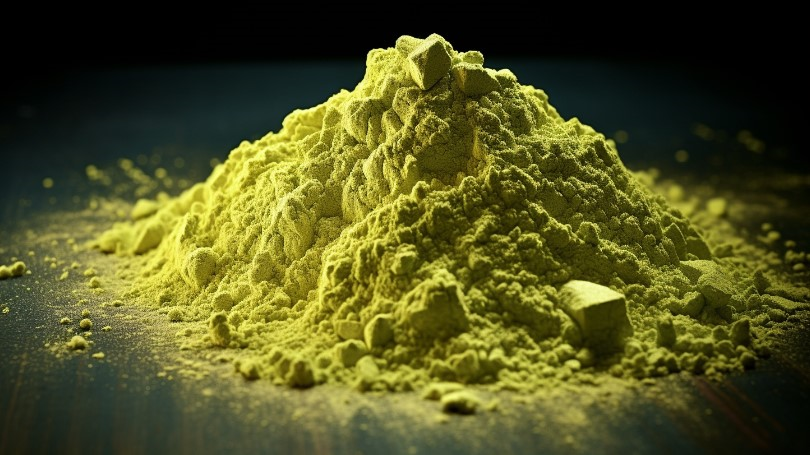¿Qué es la quercetina?

Quercetina benefits is a widely distributed bioflavonoid in the plant kingdom. It is a polyphenol that forms the basis of many different plant pigments.
What are the benefits of quercetina?
How, specifically, does quercetin benefit your health?
Antioxidante
Quercetina is an antioxidant whose antioxidant capacity is about 50 times that of vitamin E and about 20 times that of vitamin C.
It can eliminate free radicals in three ways:
1) Clear it directly yourself
2) By enzymes that scavenge free radicals
3) Inhibit free radical production
Simply put, it is to destroy free radicals by itself; Destroy free radicals through others; And tissue free radical production.
It helps fight inflammation benefits of quercetin
Quercetina has anti-inflammatory properties that inhibit the inflammatory response and the release of inflammatory mediators. This is very beneficial for reducing the symptoms of inflammatory diseases and pain associated with inflammation, such as arthritis, inflammatory bowel disease, and allergic diseases.
Immune regulation
Quercetina can regulate the function of the immune system and enhance the body’s immunity. It helps improve resistance, enhances the activity of immune cells, and promotes the interaction of immune cells, thereby enhancing the defense against infection and disease.
Vascular protection
Quercetina is very beneficial for cardiovascular health. It can lower blood pressure, regulate blood lipid levels, especially reduce the oxidation of low-density lipoprotein cholesterol (LDL-C), and prevent the occurrence of atherosclerosis.
In addition, quercetin also helps inhibit platelet aggregation, reducing the risk of blood clots.
Anti-allergic effect
Quercetin can inhibit allergic reactions and tissue inflammation, reducing allergy symptoms. It can reduce the immune response caused by allergens and reduce the inflammatory response of tissues, thus easing the symptoms of allergic diseases such as rhinitis, asthma, urticaria.
fruit rich in quercetin
Manzana
5 mg per 100 grams (about half an apple). Apples are probably the most common food and a good source of quercetin.
berry
Depending on the variety, flavonoid-rich cranberries may contain as much as 22 mg per 100 grams, while blueberries contain 7-14 mg per 100 grams (roughly equivalent to one cup).
Vegetables rich in quercetin quercetin foods
Cebolla roja
All Onions contain quercetin; But because of their pigment, red Onions have the highest levels of flavonoids, including quercetin. Cooking method can reduce quercetin content. Therefore, do not boil and fry to get the maximum flavonoid intake from these spicy vegetables.
broccoli
Broccoli and other cruciferous vegetables are a rich source of vitamins and minerals, in addition to containing compounds that promote cell health, such as sulforaphane and indole-3-methanol.
kale
Like broccoli, kale is a leafy green vegetable that benefits cell health. In addition, kale is a great source of the carotenoids lutein and zeaxanthin, which are concentrated in the retina and support healthy vision.
On average, our daily diet provides only about 6-18 mg of quercetin per day. It is recommended that you can properly supplement quercetin nutrition at ordinary times, which helps to protect the dynamic health of the lungs! Of course, you can also take more quercetin nutrients from natural foods in your daily life.
Referencias:
· Chakrawarti, L et al. “The therapeutic effect of EGCG: patent examination”, treat patent expert opinion, in August 2016,
Coyle, d. “sulforaphane: benefits, side effects and food sources”, Healthline, in February 2019,
Heinz, S. et al. “Supplementary quercetin and upper respiratory tract infection: a randomized clinical trial community”,
· Husam Dabbagh-Bazarbachi et al. “Zinc ionophore activity of quercetin and epigallocatechin gallate: from Hepa 1-6 cells to liposome models.” Journal of agricultural and food chemistry,
Kirkland, JL and T Tchkonia. “Senolytic drugs: From Discovery to transformation.” Journal of internal medicine,
· Kokotou, MG et al. “High-resolution mass spectrometry studies of sulforaphane and indole-3-methanol in broccoli.” Food chemistry,
· Ostadmohammadi, V et al. “Supplementary quercetin glycemic control in patients with metabolic syndrome and related disorders: systematic review of randomized controlled trials and meta-analysis”, phytotherapy research, in May 2019,
· Selban, MC, etc. “The effects of quercetin on blood pressure: systematic review of randomized controlled trials and meta-analysis”, the journal of the American heart association, in July 2016,
Walsh, RP et al. “Kale and other vegetables, carotenoids content changes: before and after harvest impact review”, journal of agricultural and food chemistry, in November 2015,
· “Phenol Explorer.”
“Vitamin C – Summary”, Linus Pauling Institute
quercetin supplement Manufacturer /quercetin supplements Manufacturers/quercetin Supplier /quercetin Suppliers/quercetin Factory:
www.backvita.com
Correo electrónico: [email protected]
Teléfono: +86 (029) 8187 2325
